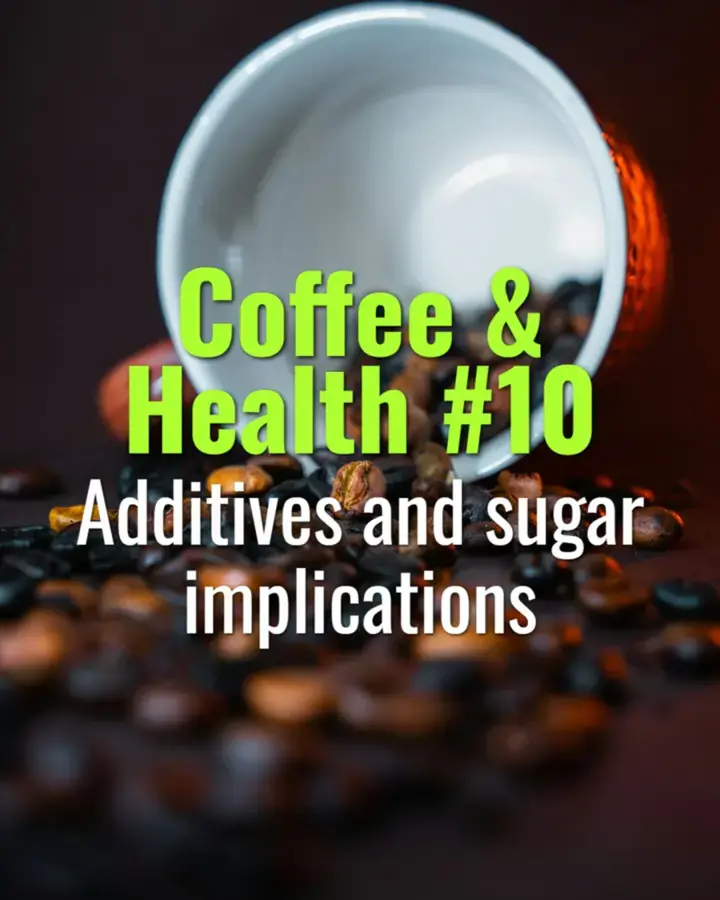Additives and sugar implications
How common coffee additives—especially sugar, syrups, and flavored creams—affect health, and strategies to balance indulgence with wellness.
- Coffee Basics Nerds
- 2 min read
Article 10 of 12 in Coffee & Health/

Common Additives in Coffee
- Sugar: White, brown, or raw sugar added for sweetness.
- Flavored Syrups: Vanilla, caramel, hazelnut, often high in sugar.
- Whipped Cream & Dairy Additives: Increase calories, fat, and sugar content.
- Non-Dairy Creamers: May contain hydrogenated oils, added sugars, and stabilizers.
Health Implications
- Sugar Intake:
- Excess sugar linked to obesity, type 2 diabetes, and cardiovascular risk.
- Specialty café drinks can contain 30–50 g sugar per serving (more than recommended daily intake).
- Caloric Load: A plain black coffee ~5 kcal vs a flavored latte with syrups/whipped cream at 250–400 kcal.
- Artificial Additives: Some creamers contain trans fats or highly processed stabilizers.
Nutritional Guidelines
- WHO recommends limiting added sugars to <10% of daily calories (≈ 25–50 g for most adults).
- One large flavored coffee can exceed this limit in a single drink.
Practical Strategies
- Offer reduced-sugar syrups or sugar-free alternatives.
- Train baristas to suggest “half-sweet” options.
- Highlight drinks naturally sweetened by milk caramelization (lattes, cappuccinos).
- Encourage smaller portion sizes for indulgent drinks.
- Use natural flavorings (cinnamon, cocoa, vanilla bean) to add complexity without added sugar.
Consumer Awareness
- Provide transparent calorie and sugar information.
- Promote balance: occasional indulgence is fine, but everyday high-sugar consumption undermines coffee’s health benefits.
Summary
Coffee itself is nearly calorie-free and rich in beneficial compounds, but sugar and additives can transform it into a high-calorie, high-sugar beverage. Moderation, reduced-sugar options, and creative flavoring strategies help preserve both taste and health benefits.